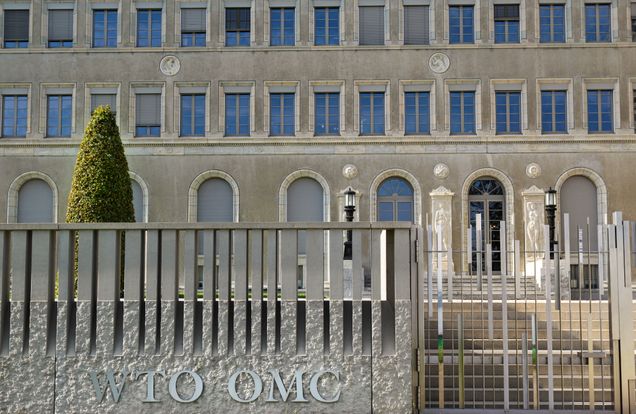Reigniting the Spirit of the Doha Declaration: Why a TRIPS Waiver Extension is Key to the Legitimacy of the World Trade Organization

Members of the World Trade Organization (WTO) have an opportunity at the 13th Ministerial Conference (MC13) in February 2024 to grant an extension to the much-embattled Waiver to the Agreement on Trade-Related Aspects of Intellectual Property Rights (TRIPS). The Waiver, proposed more than three years ago, was intended to allow countries and their pharmaceutical firms to manufacture and distribute generic versions of COVID-19 products to their populations more freely.
Recently, the international community quietly passed by the 22nd anniversary of the conclusion of the Doha Declaration on TRIPS and Public Health in November 2023. The Doha Declaration, originally adopted at the insistence of the Africa Group, was a landmark moment in international cooperation in which the members of the WTO agreed (in principle) that public health should not be undermined by a narrow reading of global rules governing intellectual property (IP).
A new policy brief from Rachel Thrasher explores the origins of the Doha Declaration as a reflection on the history of the WTO and its TRIPS Agreement, and makes the case that there is still room for the WTO to contribute to increased access to medicines by extending the TRIPS Waiver to diagnostics and therapeutics.
MC13 presents the WTO with an opportunity to strengthen the priority for public health at the institutional level. Moreover, despite some arguments to the contrary, research makes a strong case for the benefit and importance of the TRIPS Waiver extension:
- The TRIPS Agreement is not universally linked to increased innovation. While patent protection has been found to increase innovation in high-income countries, the same cannot be said for low- and middle-income countries.
- The TRIPS Agreement may have a negative impact on access to medicines. A strong thread through access to medicines research has shown that strong IP protection is linked to various measures of decreased access to medicines, such as higher prices and decreased quantities.
- Both political pressure and the legal complexity of newer medicines has made the TRIPS flexibilities difficult, if not impossible, to use. This history of the experience of WTO developing country members demonstrates that the underutilization of TRIPS flexibilities does not mean those measures themselves are not useful or unnecessary.
Twenty-two years after the Doha Declaration, and in the wake of a global pandemic, MC13 represents yet another historic moment and renewed urgency to explore amending global trade rules to better protect public health. WTO members states should be willing to grant an extension of the TRIPS Waiver to diagnostics and therapeutics because it is consistent with the spirit of the Doha Declaration and because it increases the legitimacy of the WTO as an institution by demonstrating an on-going commitment to a “fairer and more open multilateral trading system for the benefit and welfare of [all] peoples.”
Read the Policy Brief